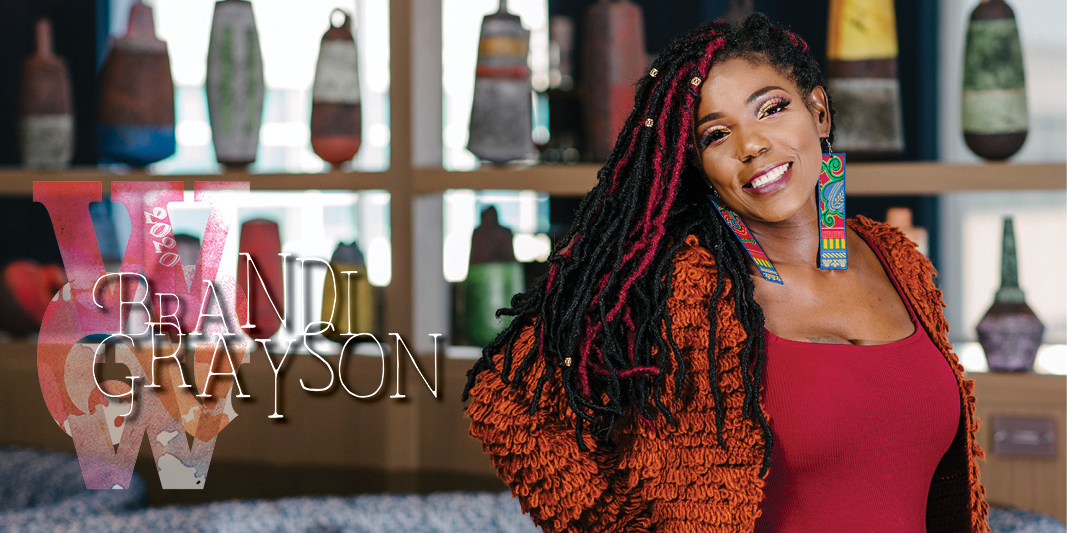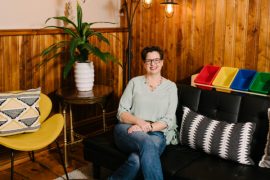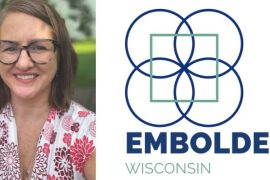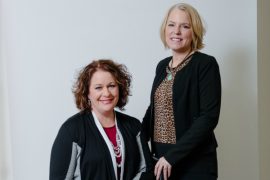By Holly Henschen | Photographed by Hillary Schave on location at Hilton Madison Monona Terrace
When Madison activist Brandi Grayson ended her work with the Young Gifted and Black Coalition in 2016, she walked away with a new understanding of how to affect change. Since the onset of the Black Lives Matter movement, Grayson had rallied tirelessly against state violence and campaigned against a new Dane County jail. But she recognized that despite vocal and tireless efforts, there’s no guarantee that others will change.
“I realized, why don’t we take that energy and give people what they need to move through those systems and advocate and get their needs met for themselves?” she says.
Now Urban Triage, the community resource organization Grayson founded in 2017, works to foster black families’ self-sufficiency through healing, community leadership and personal development.
“Advocacy is so important because there’s no other way to address health inequalities and racial disparities if we’re not equipping the folks who are most impacted by racism to navigate it,” Grayson says. “Who else is gonna do the work?”
Grayson plans to expand Urban Triage’s Supporting Healthy Black Families program with funding received as part of a collaborative $400,000, four-year grant from the Wisconsin Partnership’s Community Collaboration program. Supporting Healthy Black Families is a 90-day training program designed by Grayson that helps black parents examine the effects of white supremacy and racism in their lives—and support their children at home and within public institutions.
“The system’s institutions can be complicated, but what compounds the stress and the trauma for black families is racism,” Grayson says.
Grayson knows these systems. Moving to Madison at age 10 after growing up seeing poverty and gang violence in Chicago, she was in and out of foster care as a child and became a mother at age 13. After attending UW-Madison and taking part in student government, she worked for several local support services. She’s also the CEO of Grayson Consulting, which has helped organizations like Commonwealth Development and the Madison Municipal School District work systematically towards equity. Grayson stepped back from direct action in 2016 when her son was born, but race-related issues in city schools motivated her to continue her advocacy through Urban Triage.
Supporting Healthy Black Families, which has graduated two cohorts to date and plans four 15-person cohorts in 2020, is curriculum based on the post traumatic slave syndrome framework of Dr. Joy DeGruy. Grayson pairs data and research on racism, trauma, child development and family structure with interactive, introspective activities and conversations. In a safe group environment, participants can dig deep into the trauma caused by white supremacy and racism, see how it conditions them, and create useful parenting and personal strategies with the group. Participants gather for two hours a week over 90 days, plus attend one longer retreat and are paid a stipend.
“It’s crazy what happens when you create a safe space for people because then healing begins,” Grayson says.
Jael Currie, housing director at YWCA Madison is a cohort member. “[The training is] going back and uncovering our historical and cultural roots and using that to inform us for a better future, in this case for schools,” she says. Currie appreciates what Grayson is doing with Urban Triage. “[Brandi] built this model specifically because it was missing, and it put people in touch who probably wouldn’t have had the opportunity to engage, definitely not in this meaningful way.”
In 2020, Grayson plans to launch Supporting Healthy Black Families in Sun Prairie, as well as build a rapid response team through Urban Triage. The team, staffed by cohort members who’ve completed further training through the organization, will respond to community members’ requests for support surrounding issues like individualized education programs, the criminal justice system, legal services and housing. These advocates will act as case managers by connecting people with resources and accompanying them to meetings, for example. The people receiving assistance will then be invited to participate in Supporting Healthy Black Families training.
“[What] I find through my experience and years of working with families is when you meet them where they’re at and you help them understand that they’re fully capable, that they will and can do what they need to do,” Grayson says.





Comments are closed.